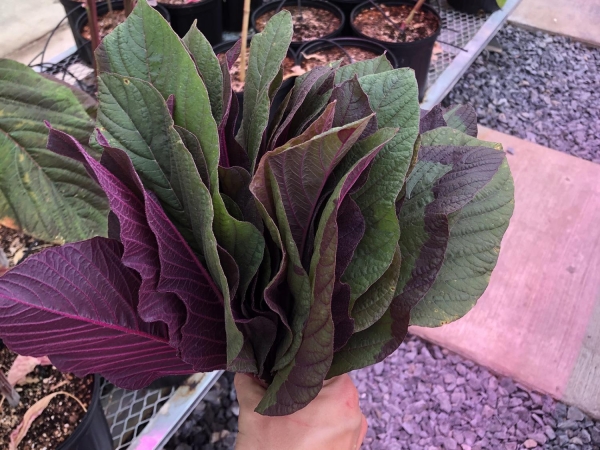The day after lead author Daniel Winstead approved the final proofs for a study to be published in Ambio, the journal of the Royal Swedish Academy of Sciences, Russia put its nuclear forces on high alert.
“In no way, shape or form had I thought that our work — ‘Food Resilience in a Dark Catastrophe: A new Way of Looking at Tropical Wild Edible Plants’ — would be immediately relevant while we were working on it,” said the research technologist in Penn State’s College of Agricultural Sciences. “In the short term, I viewed it as an abstract concept.”
Winstead and study co-author Michael Jacobson, professor of forest resources, had to look back at the Cold War era to get information for their review.
Read more at Penn State
Image: Amaranth, shown here in a Penn State greenhouse, is an annual tropical edible plant that is sometimes cultivated as a leafy vegetable. It is one of the species mentioned in the study, "Food Resilience in a Dark Catastrophe," authored by Daniel Winstead and Michael Jacobson in the College of Agricultural Sciences. (Credit: Daniel Winstead/Penn State. All Rights Reserved)


